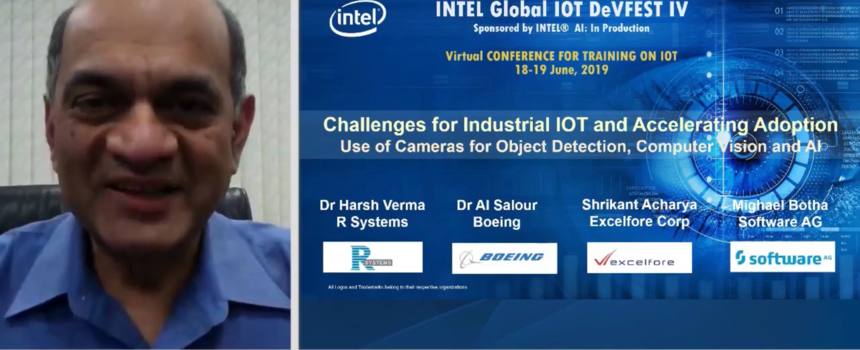
Intel IOT DevFest IV - in 5 Time Zones - Panel on Challenges for Industrial IOT and Accelerating Adoption - Use of Cameras for Object Detection, Computer Vision and AI
Industrial IOT and today’s autonomous environments require faster and more efficient engineering processes with reduced costs. Smart Factories and Industrial Systems of the Autonomous future world will provide superior operations and new markets with the business value of making things smart and intelligent, enabling safe, efficient and comfortable living. Smart Factories and Automotive IOT systems are predicted to be the fastest growing sectors of IOT. Some of the challenges include standards, security, driving safety, approaches for superior monitoring and the required Machine Learning cycles.
IOT has limitless potential with the use of sensors to collect data, use of location systems and RFID to monitor all kinds of situational data. Today, Cameras and Video Technologies are relatively inexpensive and widely deployed and along with Object Detection technologies can be used to answer a variety of questions.
Computer vision workflows and OpenVINO toolkit provides visual inferences using neural network optimization including support for deep learning algorithms that help accelerate smart video applications.
We discuss best practices for industrial and automotive applications including deployment and monitoring to increase flexibility, scaling, and simplicity for end-to-end applications. These involve developing middleware solutions for smart mobility networks, enabling next generation technologies and associated Software-as-a-Service and Platform-as-a-Service infrastructure for rapid IOT Deployments, and infusing AI and Machine Learning systems. Realizing smarter Industrial IOT requires optimization and improved performance using frameworks and topologies supported by accelerator tools with major advantages. These provide tremendous insights into options for overall performance improvements and accelerating adoption.